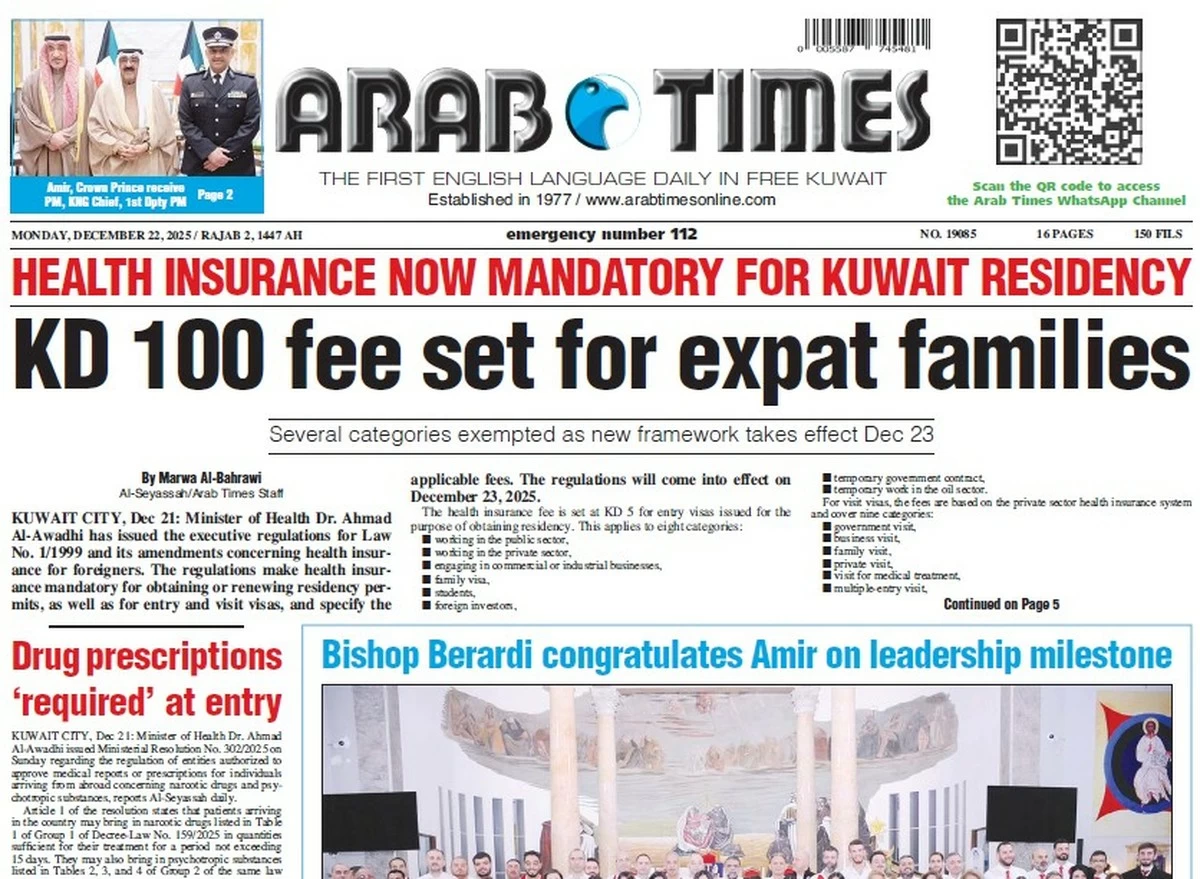07/04/2024
07/04/2024

THE elections have ended, and the outcome has revealed the return of a significant percentage of the outspoken candidates who undoubtedly announced their demands during their campaigns. However, the focus now shifts to their conduct within the National Assembly.
Will they abandon their contentious stance and collaborate with the Council of Ministers, under the realization that the dynamics within Abdullah Al-Salem Hall are different from the campaign rhetoric? Or will they strive to turn back the clock?
This depends on the parliamentarians themselves, and how they reconcile their promises to their voters. It depends on whether they will “bring the wolf by the tail”, or they come to the realization that the country’s situation requires a different approach to matters, instead of imposing promises on the basis of what they pledged.
This is because the financial and economic situation of the state cannot be accepted by the Council of Ministers, regardless of its composition and form, as they are governed by the capabilities that they have.
They must also know that the approach of the current political leadership is different from its predecessors. It has the wisdom and decisiveness that can enable it to go until the end in order to preserve the country’s highest interests. Therefore, it will not accept any leap into the unknown, irrespective of the cost.
In this regard, parliamentarians must realize that there are many obstacles preventing the fulfillment of their promises, the most important of which is the fact that the economic stagnation that the state has suffered in recent years due to ill-considered decisions and laws has affected the national product, which today needs strengthening.
Experiences spanning from 60 years ago to the present day have proven that depending solely on oil revenues and foreign investment returns does not establish a resilient economy capable of withstanding crises
Moreover, the state’s current financial obligations are greater than its ability to undertake any kind of adventure that meets electoral promises.
What the region and the Arab world are facing requires everyone to resort to solutions that may be painful at times, but are necessary, which means that the relationship between the two authorities cannot continue on the path of conflict that prevailed in the past.
Regardless of the MPs’ efforts to bolster their electoral credentials by appealing to their voters, they must recognize the sensitivity of the regional and international situation, which prioritizes Kuwait’s interests above all else.
Based on insights gleaned from the speeches of His Highness the Amir, particularly his speech during the last ten days of Ramadan, there appears to be a willingness from the leadership to address reasonable demands that benefit the people and bolster the economic and financial situation.
As for other parliamentary dreams, they have no place in its vision. We stress that its approach is completely different from the previous ones, and this is what the parliamentarians must understand, regardless of their views or agendas.
On this basis, the approach in the immediate future needs to be different from past parliamentary practices. Also, if MPs persist in pushing for unfeasible promises, the current parliament will be told, “Goodbye.”
Whether within the constitution or beyond, persisting with failed experiments and incomplete treatments is illogical.
What is urgently needed is to bridge the gap between the two authorities caused by the personal and political visions and agendas of some individuals in parliaments or successive ministries, instead of expanding it as if the goal is to risk the fate of the state to impose dreams that cannot be achieved.
By Ahmed Al-Jarallah
Editor-in-Chief, the Arab Times


